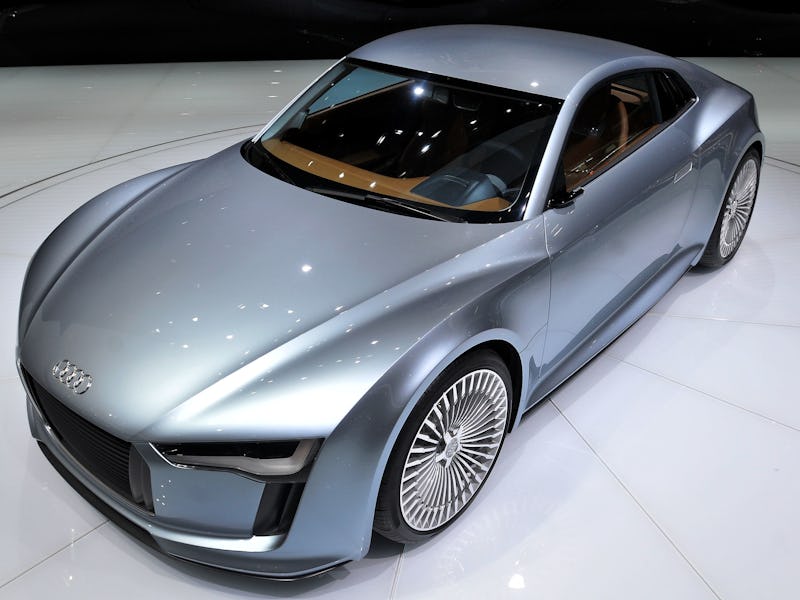Audi is staking a big claim in China before Tesla arrives.
The German automaker has announced that it will release five new electric vehicles in the country over the next five years, just as a new law in China would allow Tesla to enter the Chinese electric car market. It looks like Audi is getting ready for an all out electric-car Battle Royale.
As of last year, the Chinese auto market is the largest car market in the world, and there are more electric vehicles in China than anywhere else. This boom is based mostly on subsidies for electric car purchases offered by the Chinese government in an effort to reduce pollution. These subsidies (about $16,000 per car, more than double the U.S. federal subsidy of $7,500) helped sales of electric cars in China skyrocket: more than 300,000 electric vehicles were sold in 2016 in China.
The subsidies are decreasing for 2017, but the Chinese government is serious about increasing the consumer market. So serious that at the end of December, the government proposed to lighten the law that required foreign companies to share their tech with local manufacturers for electric vehicles. This would allow companies like Tesla to come in and build their cars in China.
This law hasn’t yet been approved but is expected to be announced in the coming weeks. For Audi, which has a local partner, FAW manufacturing group, getting a manufacturing deal in now is likely a defense against Elon Musk’s potential domination of the Chinese market.
Audi is going to produce the Audi A6 L e-tron in China and import the Q7 e-ton this year.
A traffic jam in Shenzhen. China's market for electric cars is rapidly expanding thanks to aggressive government actions, and Audi wants a piece of the pie.
Audi also announced on Tuesday that it would release a battery-powered car with a range of over 300 miles — probably the Quattro e-ton, which is likely to be released this year. Most electric cars in China are still short distance only, so this is a big change for the Chinese market.
So for Audi, it makes a lot of sense to jump in on a deal like this now. With the major subsidies, they can release and sell a lot more electric cars in China than they would anywhere else. It also helps cover the costs of producing the batteries needed to make electric cars, which is a major expense for an automaker. And with the size of the Chinese market, getting a foot up now can give Audi a big advantage as companies like Tesla try to move in, and lets them test their technology at a decreased expense.
